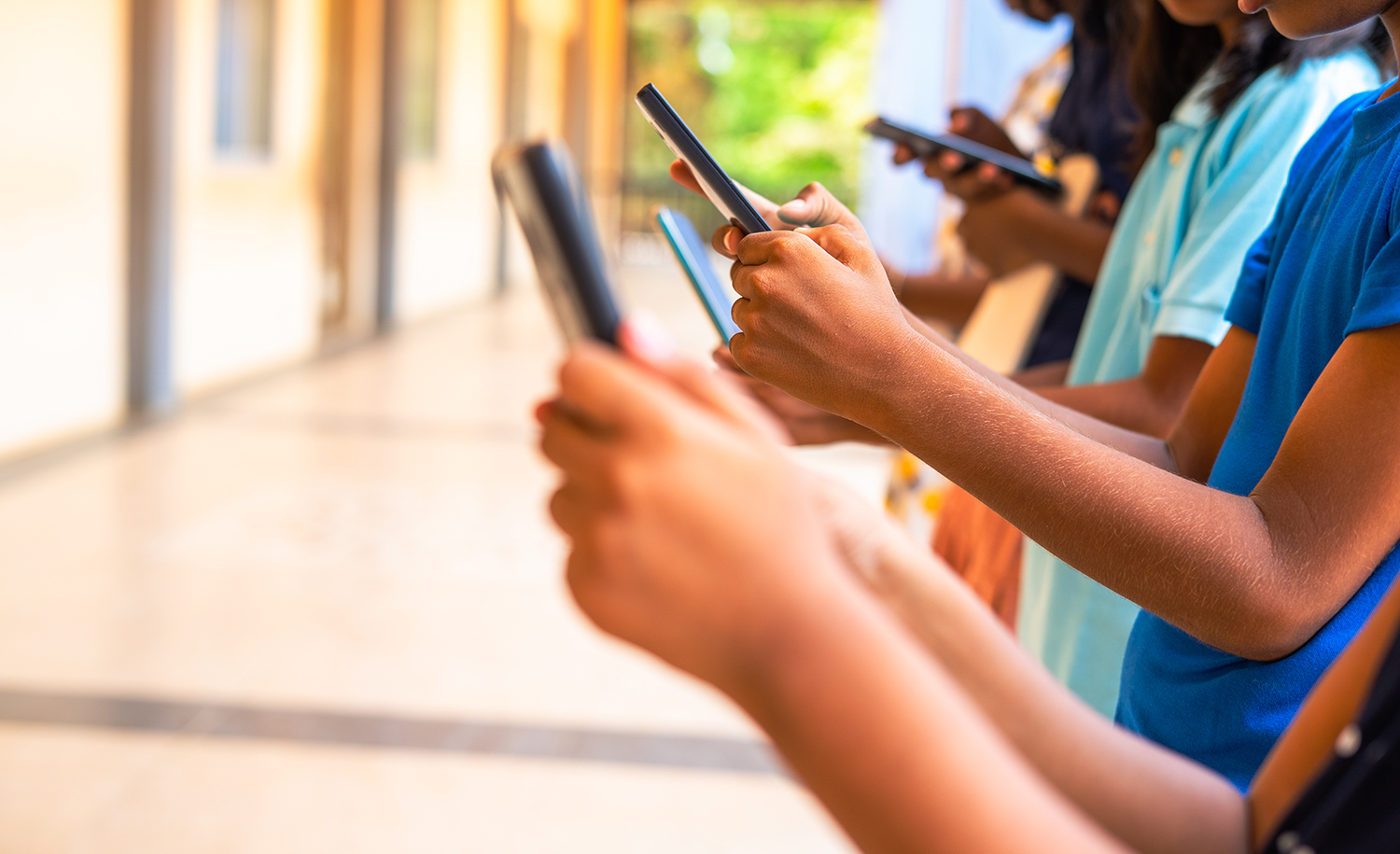Register now and start:
- Accessing PAR Training
- Shopping PAR products & tools
- Using online assessments with PARiConnect


Social media has become ubiquitous in today’s society. Whether it’s snapping a quick picture to post to Instagram or networking with a colleague via LinkedIn, social media has seeped into every area of our lives—and even more so with teenagers who have grown up with the presence of social media from a young age. Although social media has helped connect people across the globe, helping them bridge distances and communicate with those with similar interests, it is also a topic of concern due to its impact on mental health—specifically on the mental health of adolescents.
According to a recent study by the Pew Research Center, 95% of adolescents in the U.S. currently have a social media presence. Ninety-five percent of those surveyed report using YouTube; with TikTok, Instagram, and Snapchat being used by more than half of teens ages 13 to 17 years. Furthermore, more than a third of teens report that they use social media “almost constantly.”
Learn more about the latest research, insights, and advice from thought leaders on empowering adolescents for a healthier online experience.
Social media and adolescents
Research is ongoing regarding the impact social media has on adolescents. In a recent Pew Center Research survey, teens were asked about their experiences with and views toward social media. Notable findings include:
Although 80% of adolescents say social media helps them feel more connected to their friends’ lives, many teenagers say social media is creating negative experiences, with 38% of teens noting that what they see on social media overwhelms them because of all the drama. Nearly a third of those surveyed by Pew say social media makes them feel left out or causes them to feel pressured to post content that will get lots of comments or likes (29%). About a quarter of those surveyed say that what they see on social media makes them feel worse about their lives.
Some positive news
However, not all of the Pew findings were negative. About a third of adolescents (32%) say social media has had a mostly positive effect on them personally, with nearly a quarter of teens saying it has been positive for other people their age. Teens also report other favorable experiences, including:
In light of these numbers, it seems that navigating this digital landscape presents challenges. U.S. Surgeon General Dr. Vivek Murthy recognizes these concerns and recently released the Surgeon General's Advisory on Social Media and Youth Mental Health. The advisory cautions that even though social media may offer adolescents some benefits of connection, it also presents harm to their mental health and well-being. The Surgeon General’s report emphasizes the importance of policymakers and technology companies in strengthening protections to ensure the safety of adolescents using social media platforms, which can only be achieved by collaborating to develop age-appropriate standards, better data privacy controls, and an emphasis on developing a digital and media literacy curricula in schools.
Latest APA guidance on adolescents and social media
In a similar vein, the American Psychological Association (APA) also recently issued guidance on adolescent social media use.
“Social media is neither inherently harmful nor beneficial to our youth. But because young people mature at different rates, some are more vulnerable than others to the content on social media platforms that science has demonstrated can influence healthy development,” states APA President Thema Bryant, PhD, in a press release.
To address these growing challenges, APA created a presidential panel of thought leaders to issue recommendations and guidance on social media use for parents, educators, policymakers, psychologists and health practitioners, tech companies, and adolescents. For example, research states that adolescent brain development begins around age 10 and continues through early adulthood. The APA cautions that sites that use “like” buttons and infinite scrolling may be dangerous for developing brains. APA recommends limiting social media use on these platforms through phone and device settings.
The APA panel also encourages parents to model healthy social media use, including taking social media “holidays” as a family. Here are other key takeaways from the APA recommendations:
Final thoughts and considerations
The advisory also states the importance of screening for “problematic social media use” that can impair an individual’s ability to engage in daily routines, such as the inability to log off social media even when they want to stop. It also recommends limiting social media to be sure it is not interfering with an adolescents’ sleep or physical activity. Of particular note, it stresses the importance of not using these platforms to compare themselves to others, as social media presents a curated snapshot and not a full picture of an individual’s life.
The impact of social media on the mental health of adolescents will continue to evolve and recommendations will continue to adapt and change, just as the platforms adapt and change. The APA panel acknowledges that more research is needed to understand the full impact social media has on adolescent mental health. However, these recommendations are a starting point to address social media and its impact on the social, educational, and psychological lives of teenagers.
“Given that research demonstrates that social media use has an influence on adolescent development and the APA has made recommendations regarding social media use for adolescents, it may be helpful for psychologists and mental health professionals working with adolescents to incorporate the impact of social media use into their evaluations and therapeutic interventions,” said PAR Project Director Nikel Rogers-Wood, PhD. “Knowing more about how an adolescent engages with social media can facilitate a greater understanding of their strengths, challenges, and daily experience.”
Further reading
American Academy of Pediatrics. (February 2023). Center of Excellence on Social Media and Youth Mental Health. Retrieved from https://www.aap.org/en/patient-care/mediaand-children/center-of-excellence-on-social-media-andyouth-mental-health/#:~:text=What%20We%20Do,protect%20 youth%20mental%20health%20online
American Psychological Association. (May 2023). Health Advisory on Social Media Use in Adolescence. https://www.apa.org/topics/social-media-internet/health-advisory-adolescent-social-media-use.pdf
U.S. Surgeon General. (May 2023). Social Media and Youth Mental Health: The U.S. Surgeon General’s Advisory. https://www.hhs.gov/sites/default/files/sg-youth-mental-health-social-media-advisory.pdf